Ever wished you had the magic to effortlessly fill your content calendar with topics your audience will love?
Maintaining a steady flow of fresh and engaging content is important for capturing and retaining your audience’s attention.
However, the challenge of consistently coming up with new content ideas can be exhausting.
Well, here’s the next best thing.
There are numerous effective strategies to keep your content pipeline full and your creativity thriving.
In this post, we’ll explore 12 proven strategies to ensure you never run out of content ideas again. So, without any further ado, let’s get started.

Table Of Contents
- Use Content Discovery Tools
- Use Content AI Generators
- Use Chatbots
- Conduct Keyword Research
- Look at Your Competitor’s Content Strategies
- Analyze the Most Popular Blog Posts
- Join Social Media Conversations
- Explore Google Search Suggestions
- Subscribe to Industry Newsletters
- Use Content Curation Tools
- Listen to Podcasts and YouTube Videos Related to Your Niche
- Discover New Content Ideas on Reddit
- Review Blog Comments
- Stay Updated on the Latest Product Launches
- Talk to Industry Experts
1 Use Content Discovery Tools
Content discovery tools like ContentIdeas.io are handy for maintaining a steady flow of engaging content ideas.
These tools make identifying trending and highly shared topics easy across platforms like Facebook, Pinterest, and Reddit.
By simply entering a broad niche keyword such as ‘Search Engine Optimization,’ the tool creates a list of the most shared and engaging content from these platforms, helping you stay updated with what’s resonating with audiences.
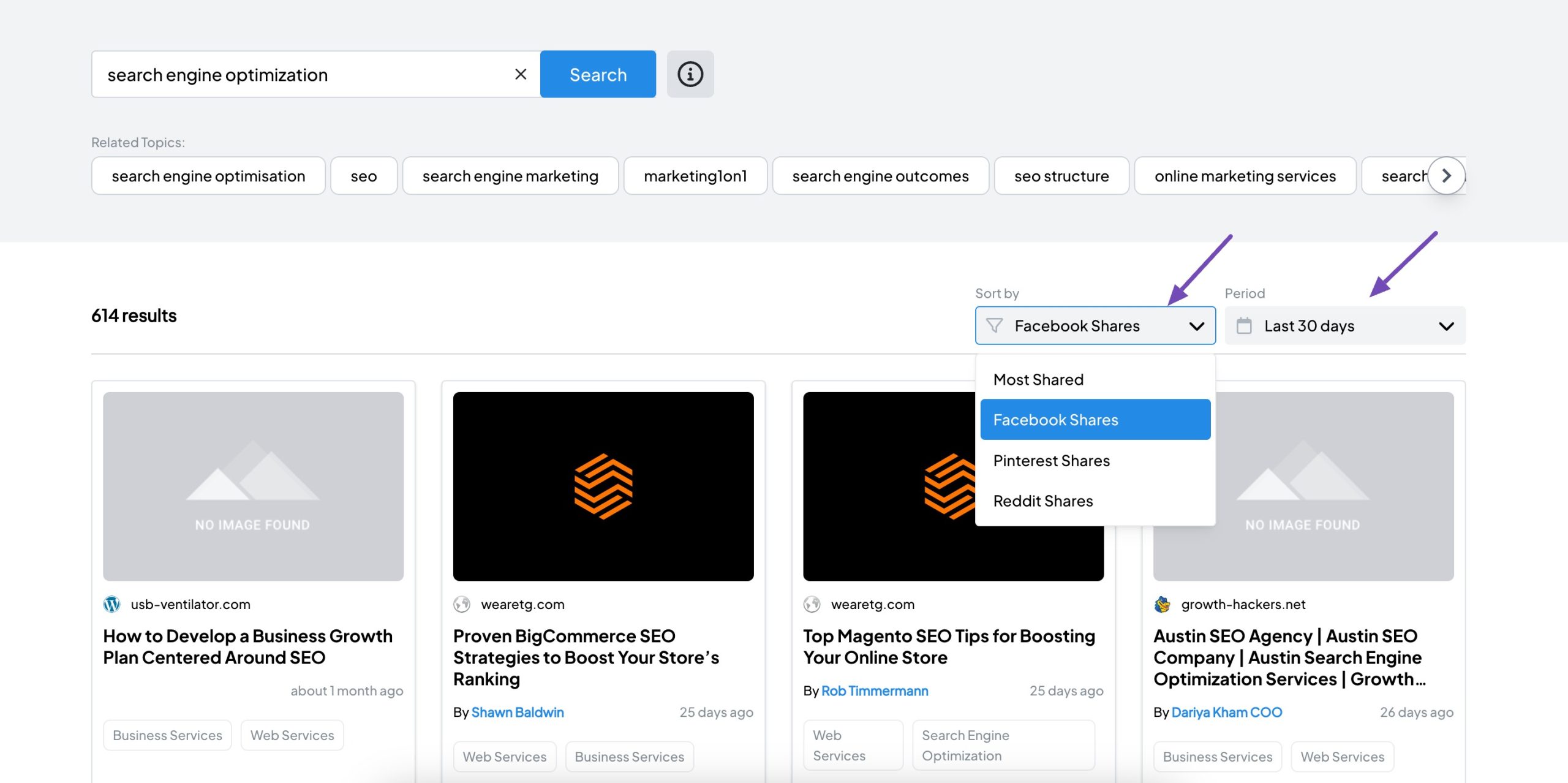
The tool also allows you to pinpoint top-performing content by showcasing posts with the most engagement, such as likes, shares, and comments, within a chosen time frame, like the last 30 or 180 days.
For even more targeted results, you can adjust filters to focus on specific platforms or extend the timeframe to uncover long-term trends.
2 Use Content AI Generators
AI is helping users generate more creative content ideas (44%) and spend less time planning (34%).
Using content idea AI generators can be a game-changer for maintaining a steady stream of engaging topics.
Rank Math’s Topic Research and Blog Post Idea AI tool is designed to simplify the brainstorming process and boost your content strategy.
To use the Topic Research and Blog Post Idea tool, enable the Content AI module from your WordPress dashboard.
Next, in the Topic Research AI tool, enter all the details in the Topic Research AI tool and click the Generate button. Content AI will then display the suggestions based on your input in the Output field, as shown below.
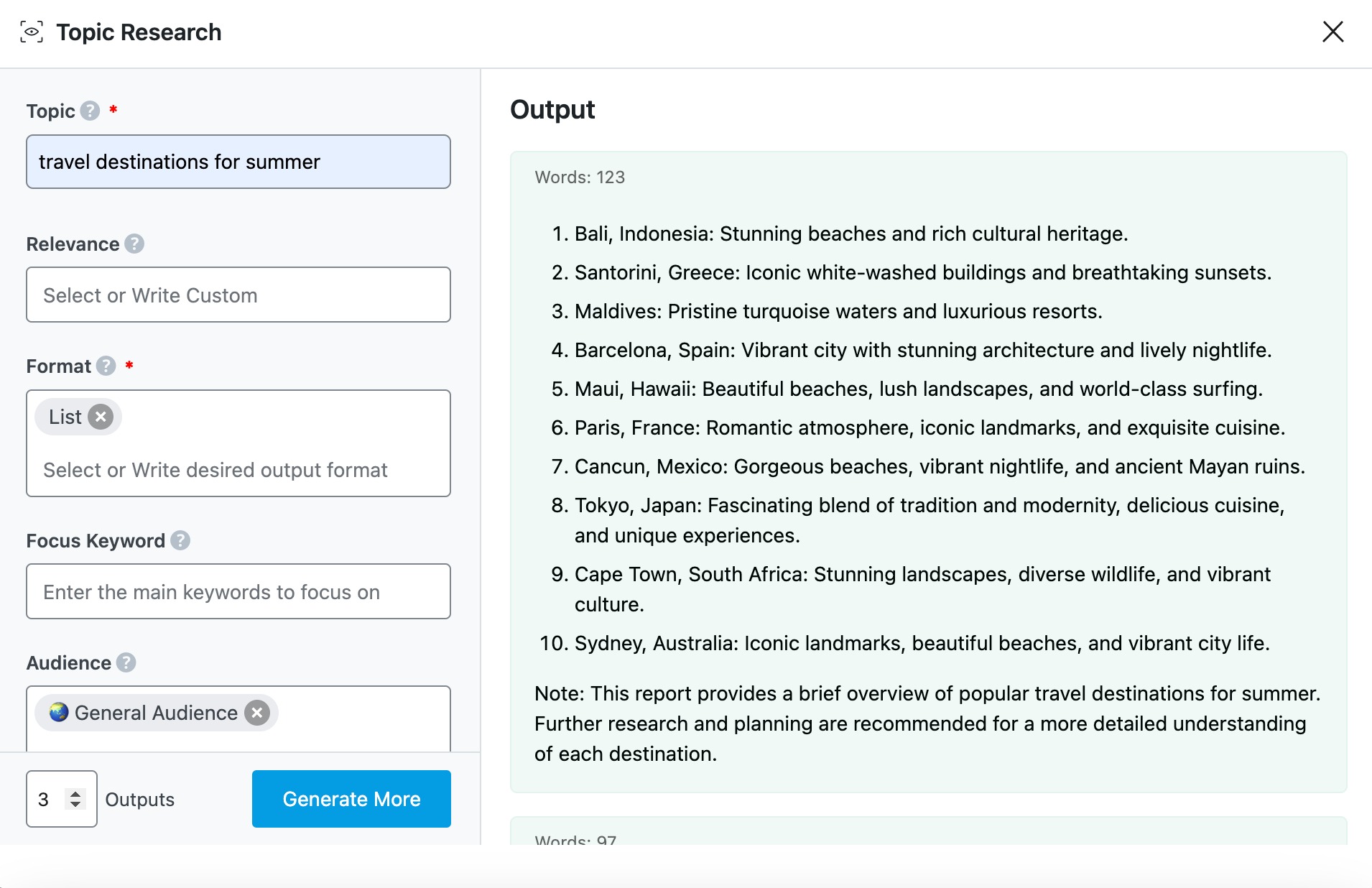
This not only saves time but also ensures that your content is optimized for search engines, enhancing your visibility and reach.
Similarly, in the Blog Post Idea tool, enter the relevant details, and Content AI will generate ideas for you in no time.
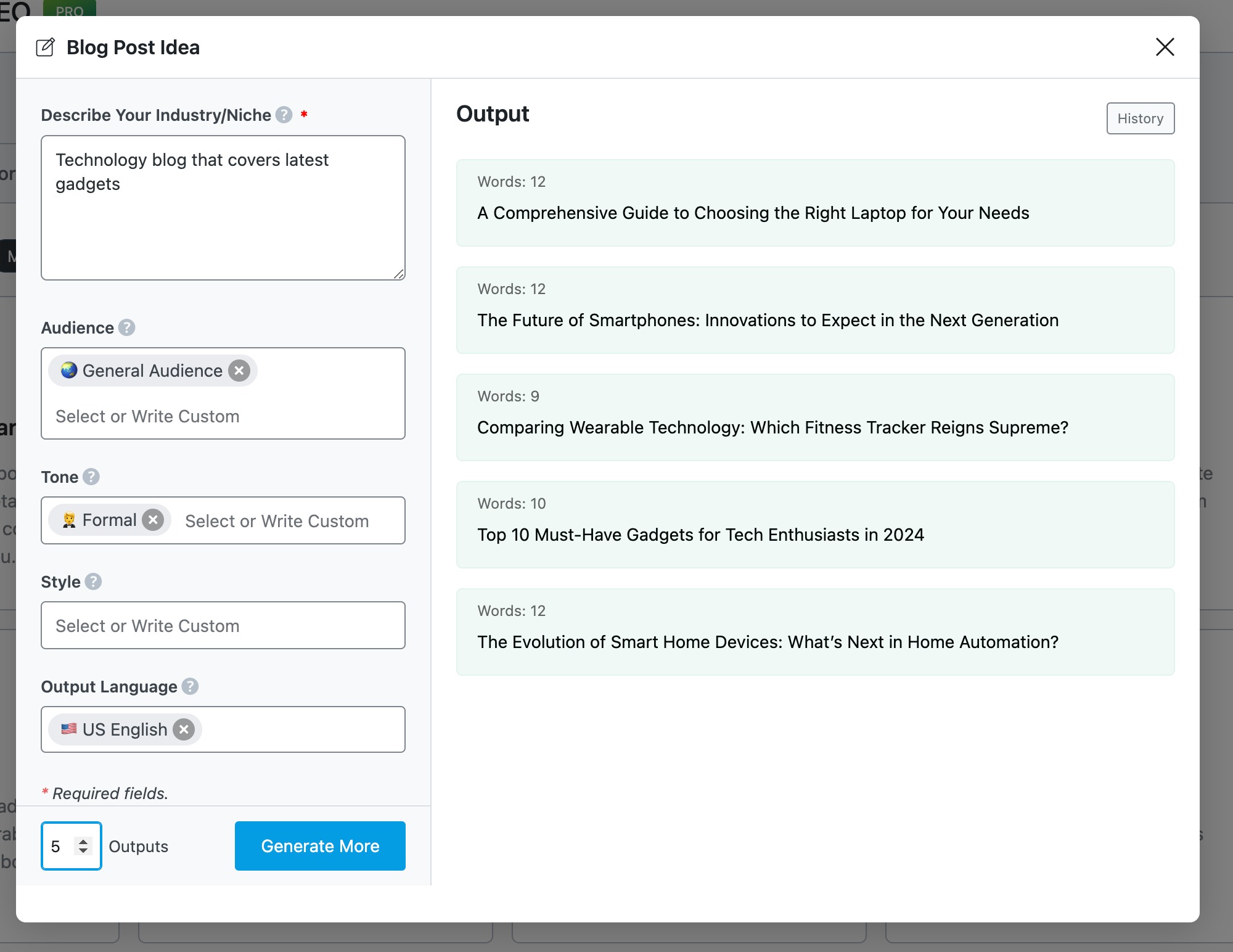
3 Use Chatbots
Other than Rankbot, Chatbots like ChatGPT, Claude, and Google Gemini are powerful tools for effortlessly generating a wide range of content ideas.
By using their advanced capabilities, you can explore new topics, uncover niche-specific trends, and craft engaging content strategies tailored to your audience.
For instance, you can prompt these chatbots with queries such as, ‘What are the commonly searched long-tail keywords in the dog food niche?’ to receive a list of relevant and high-demand keywords.
These suggestions can be a foundation for creating blog posts, social media updates, or other content types.
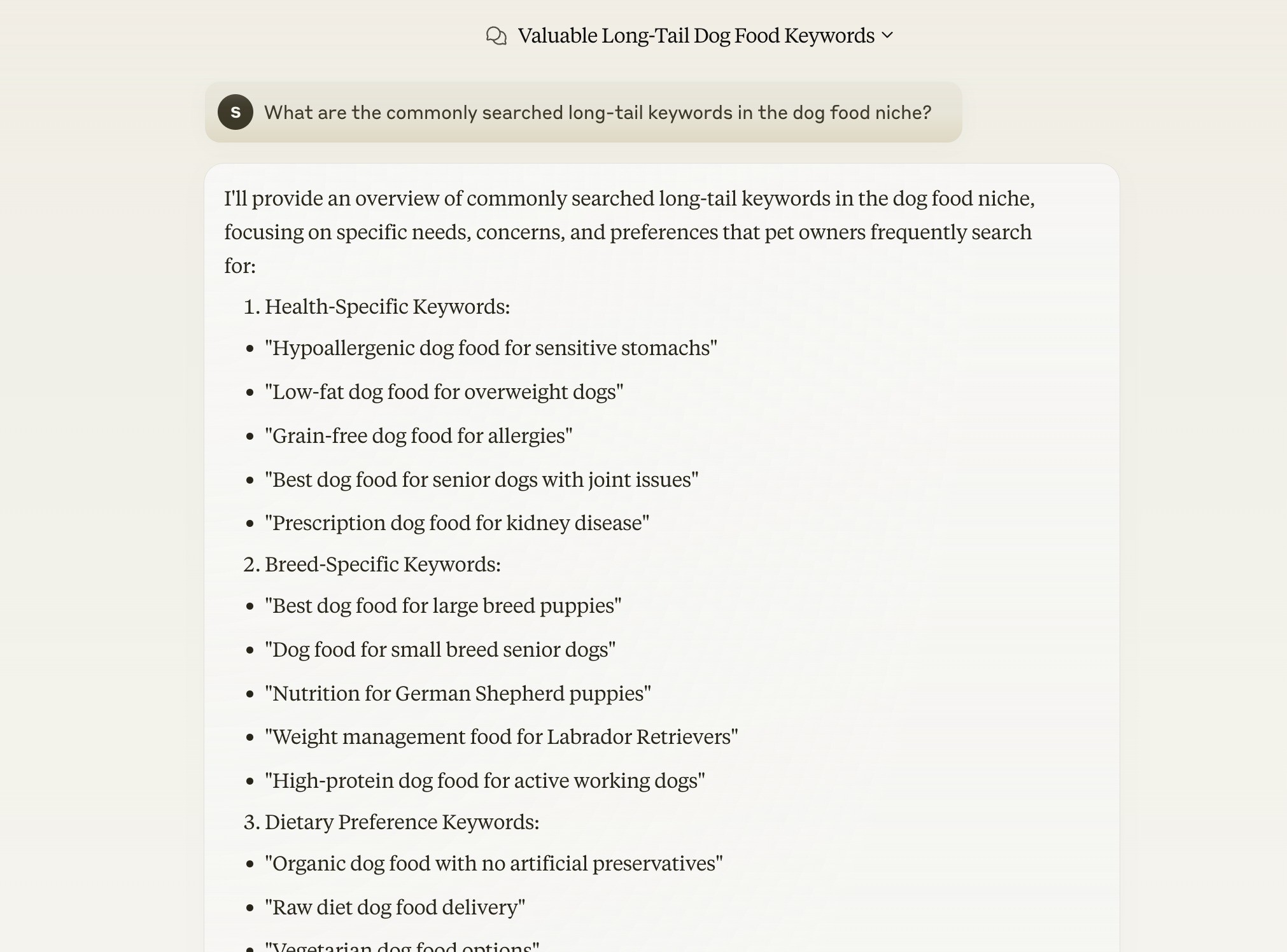
To refine your results, you can tweak the prompts to target specific needs, such as generating keywords with a fixed number of words (e.g., five-word keywords) or finding commonly asked questions about a particular topic.
You can consistently uncover fresh content angles by experimenting with prompts like, ‘What are some blog ideas for [industry]?’ or ‘What are the trending events in [niche]?’.
With the right prompts, these tools can unlock endless creative content ideas for your content planning.
4 Conduct Keyword Research
Keyword research is a powerful approach to generating effective content ideas.
Focusing on high-volume keywords ensures that your content has the potential to reach a wider audience while targeting low-competition keywords increases your chances of ranking higher in search engine results.
By using keyword research tools such as Google Keyword Planner, Semrush, or Ahrefs, you can identify high-volume, low-competition keywords that are relevant to your niche.

These tools provide valuable insights into what your target audience is searching for, allowing you to create your content to meet their needs.
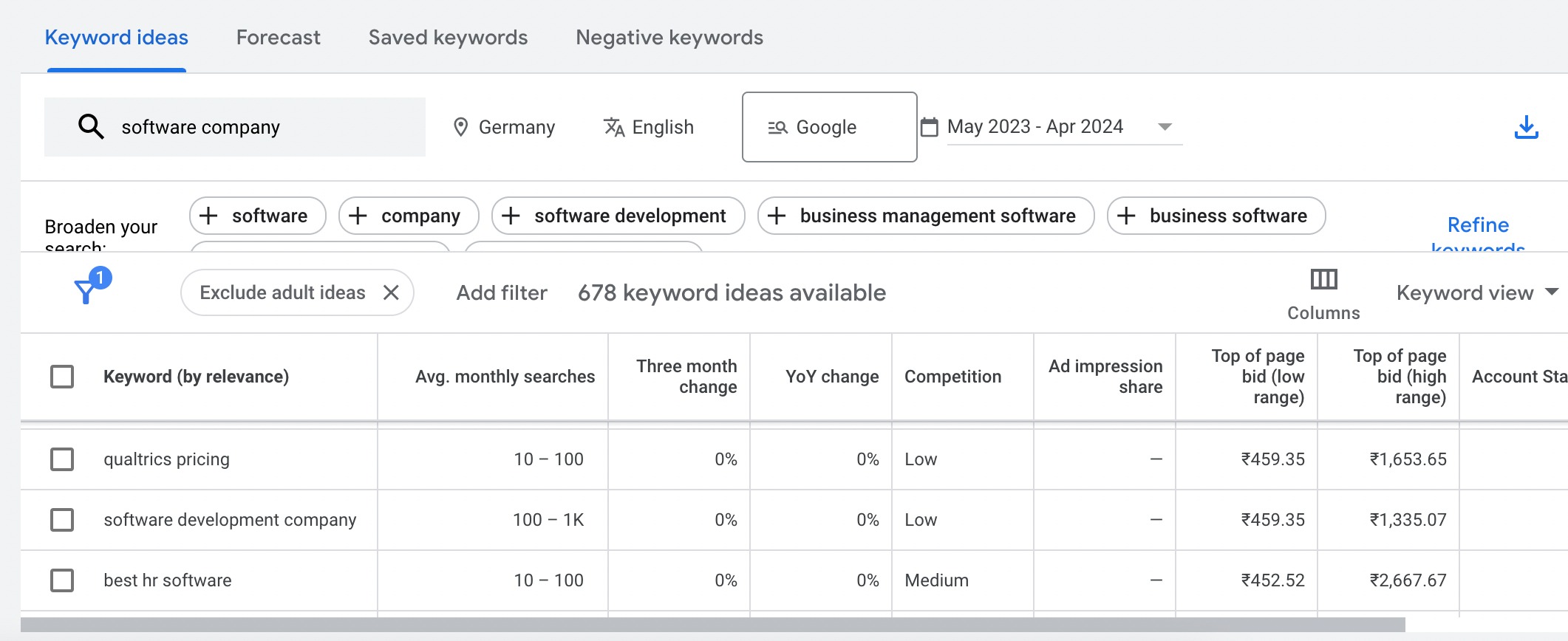
Additionally, exploring long-tail keywords can be especially beneficial. Long-tail keywords are more specific and often less competitive than broad search terms.
By creating content around these detailed phrases, you can attract a niche audience that is more likely to convert because their search queries are more targeted and precise.
Refer to our dedicated tutorial on keyword research to boost your online presence to new heights.
5 Look at Your Competitor’s Content Strategies
Examining your competitors’ content helps you identify gaps and opportunities in your own content plan. Start by exploring their websites and blogs, observing the topics they cover and the types of content they produce, such as videos, articles, and infographics.
For instance, if a competitor’s blog series on a specific topic drives significant organic traffic, it indicates a strong interest in that topic among your shared audience. The goal isn’t to copy their content but to understand what interests your target audience and how you can fill in the content gaps or offer a unique perspective.
You can use competitor analysis tools that can be particularly useful for this analysis, as they provide detailed insights into your competitors’ most popular content and the keywords they are targeting.
For instance, if a competitor has a successful post on a particular topic but hasn’t covered all aspects of it, you can create a more comprehensive guide.
You can monitor how well your content is optimized for specific keywords compared to your competitors. Use Rank Math’s Content AI for keyword suggestions and optimization tips to target the keywords your competitors rank for.
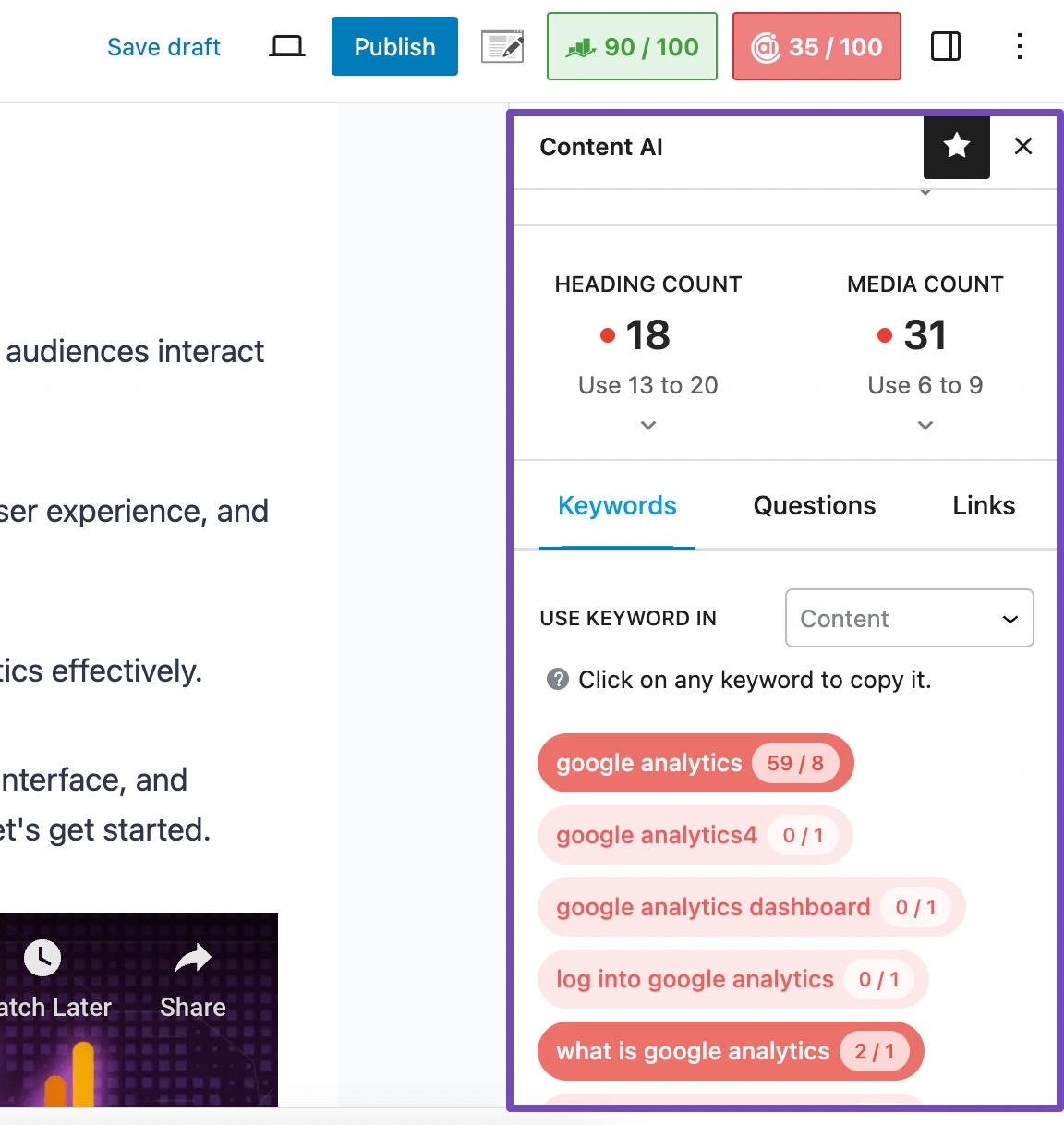
Refer to our dedicated tutorial on SEO competitive analysis and pinpoint the strengths and weaknesses of your content.
6 Analyze the Most Popular Blog Posts
Analyze your most popular blog pages using Google Analytics to generate new content ideas.
By examining which pages attract the most traffic, you can identify the topics and formats that align best with your audience.
Login to your Google Analytics account, and navigate to Reports → Engagement → Pages and screens, as shown below.
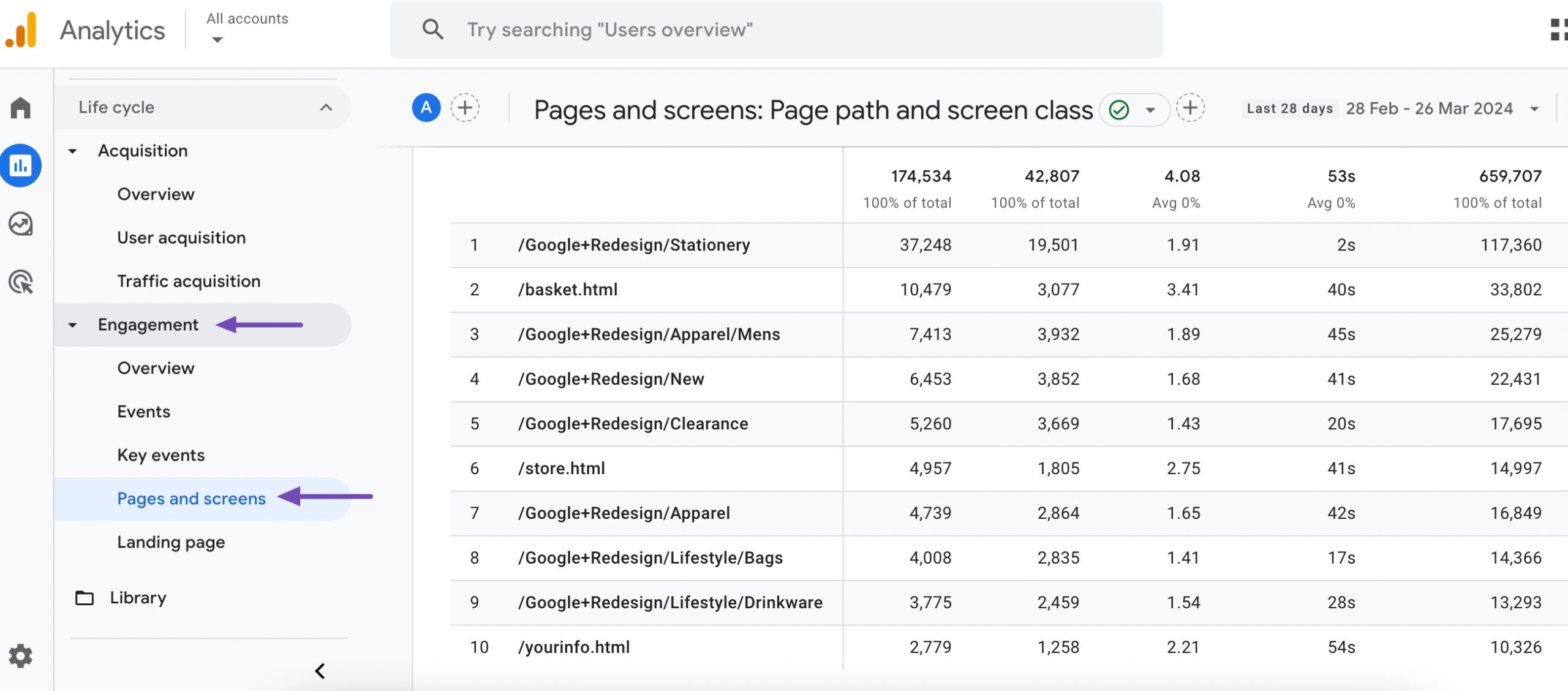
Here, you will find a list of your top-performing pages based on various metrics such as page views, average time on page, etc.
Focus on these popular posts’ content themes and topics to understand what interests your readers most.
If you use Rank Math PRO, you can view all the keywords your site ranks for in the Analytics module.
To find page-specific keywords, navigate to the SEO Performance tab. This section displays performance metrics for each page on your site.
Simply expand a page—for example, by selecting one from the list—and you’ll see all the keywords that page is ranking for.

Using this data, you can uncover high-quality content ideas directly from the insights provided by the Analytics module.
7 Join Social Media Conversations
Joining social media conversations is a powerful method for generating fresh content ideas.
Social media platforms are bustling with discussions, trends, and insights that can provide a wealth of inspiration for your content strategy.
Start by identifying the platforms where your target audience is most active, such as Twitter, Facebook, LinkedIn, or Instagram.
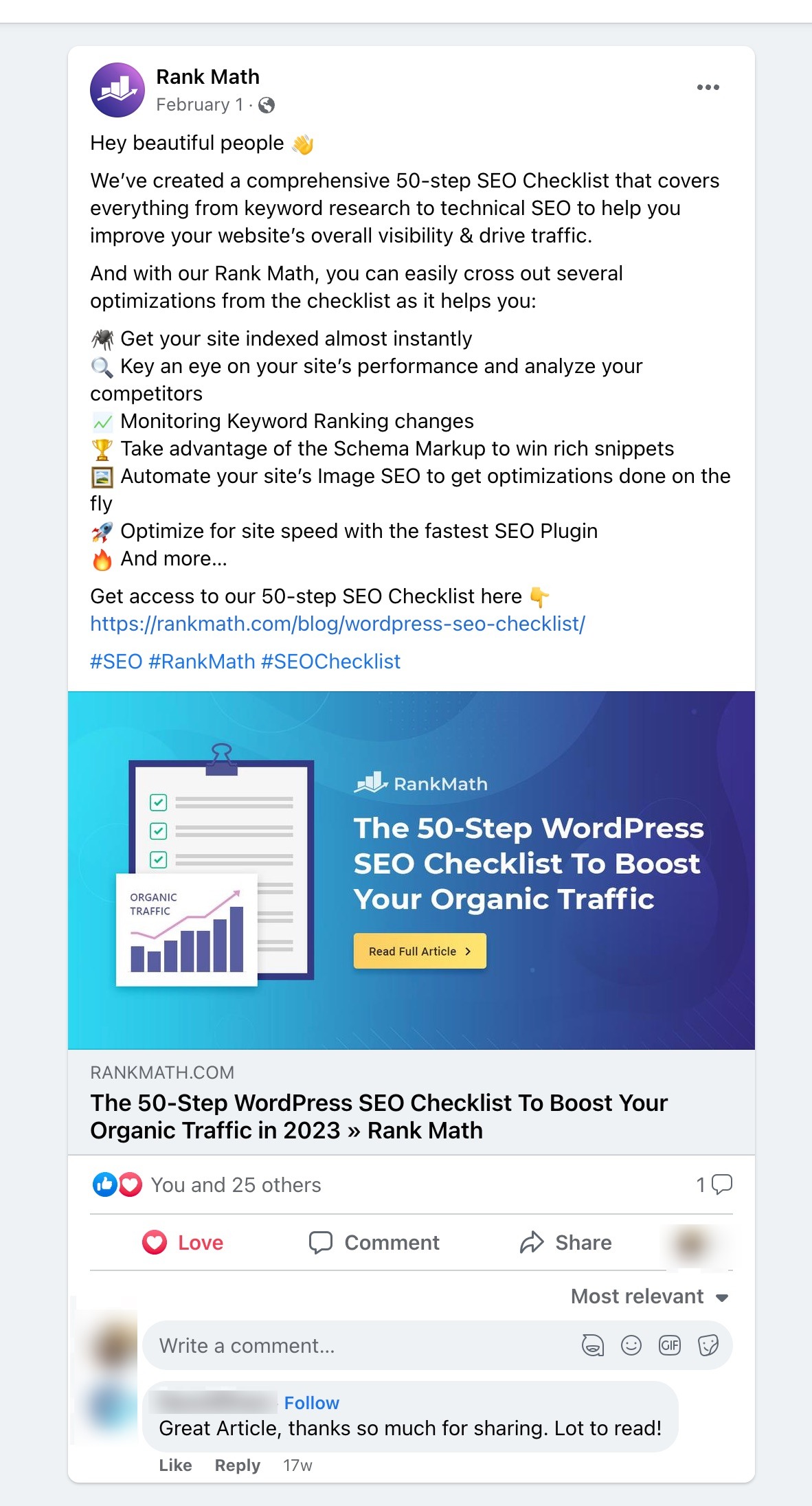
Monitor relevant hashtags, follow industry leaders, and participate in groups or communities related to your niche.
Engaging in the conversations allows you to listen to your audience’s questions, concerns, and interests directly.
Pay attention to the recurring themes and topics that generate the most interaction and engagement. This can help you understand what your audience is passionate about and what information they are seeking.
Use the information gained from social media to create content that addresses trending topics, answers common questions, or provides new perspectives on ongoing debates. This approach ensures your content remains relevant, timely, and highly engaging for your audience.
8 Explore Google Search Suggestions
Exploring Google search suggestions is an effective way to generate content ideas that are directly aligned with what audiences are searching for.
When you start typing a query into Google’s search bar, it automatically provides a list of suggested searches based on popular and relevant queries.
To use this feature, begin by typing a keyword related to your industry or area of interest into the Google search bar. Pay attention to the autocomplete suggestions that appear, as they reflect common searches that can inspire relevant and engaging content.
For instance, if you type content marketing, suggestions can include content marketing strategy, content marketing examples, content marketing tools, etc. Each of these suggestions can serve as a potential topic for a new blog post, video, or other types of content.
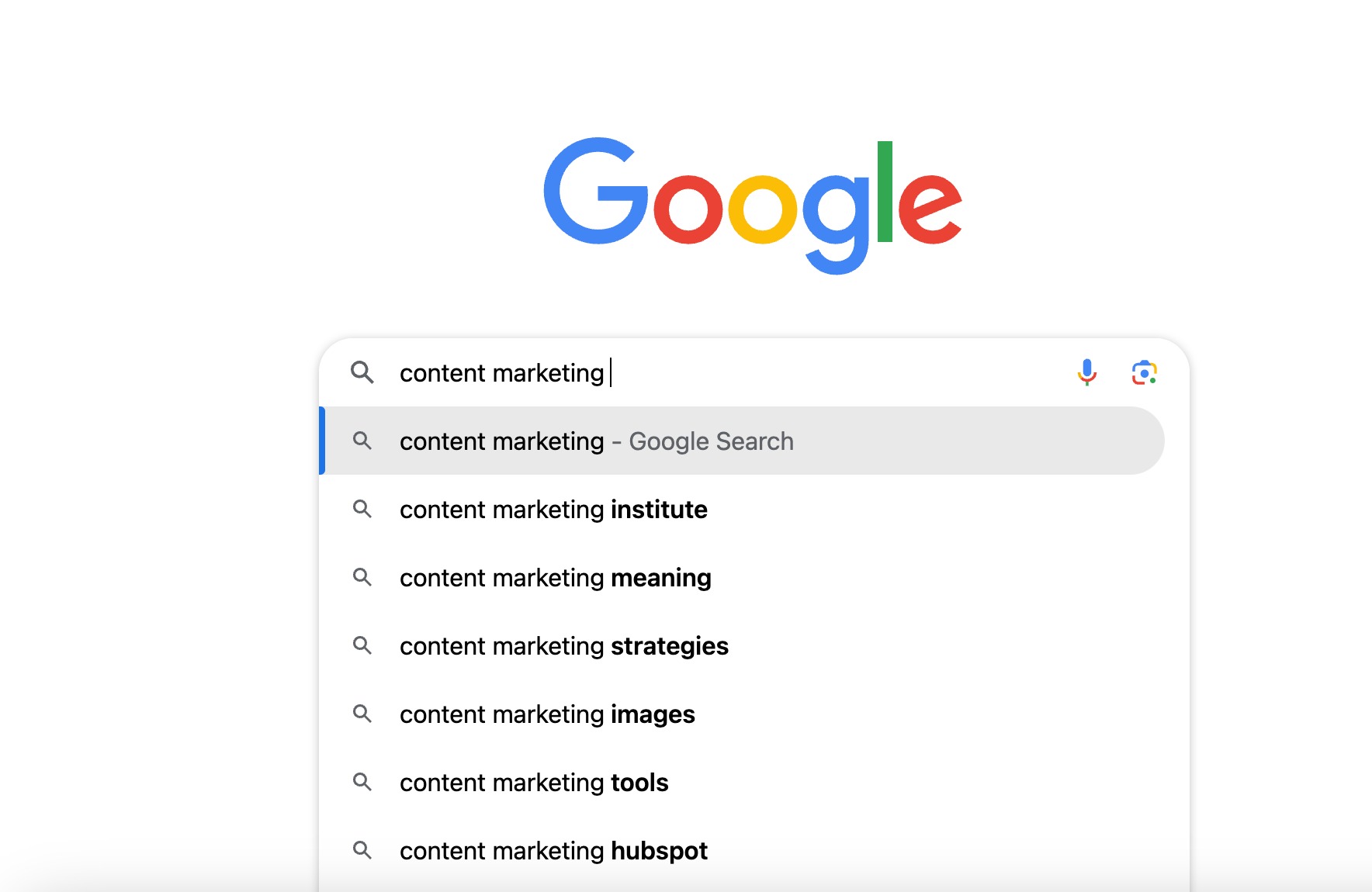
You can also check the People Also Search For area in the search results. This helps to find low-competition, long-tail keywords.
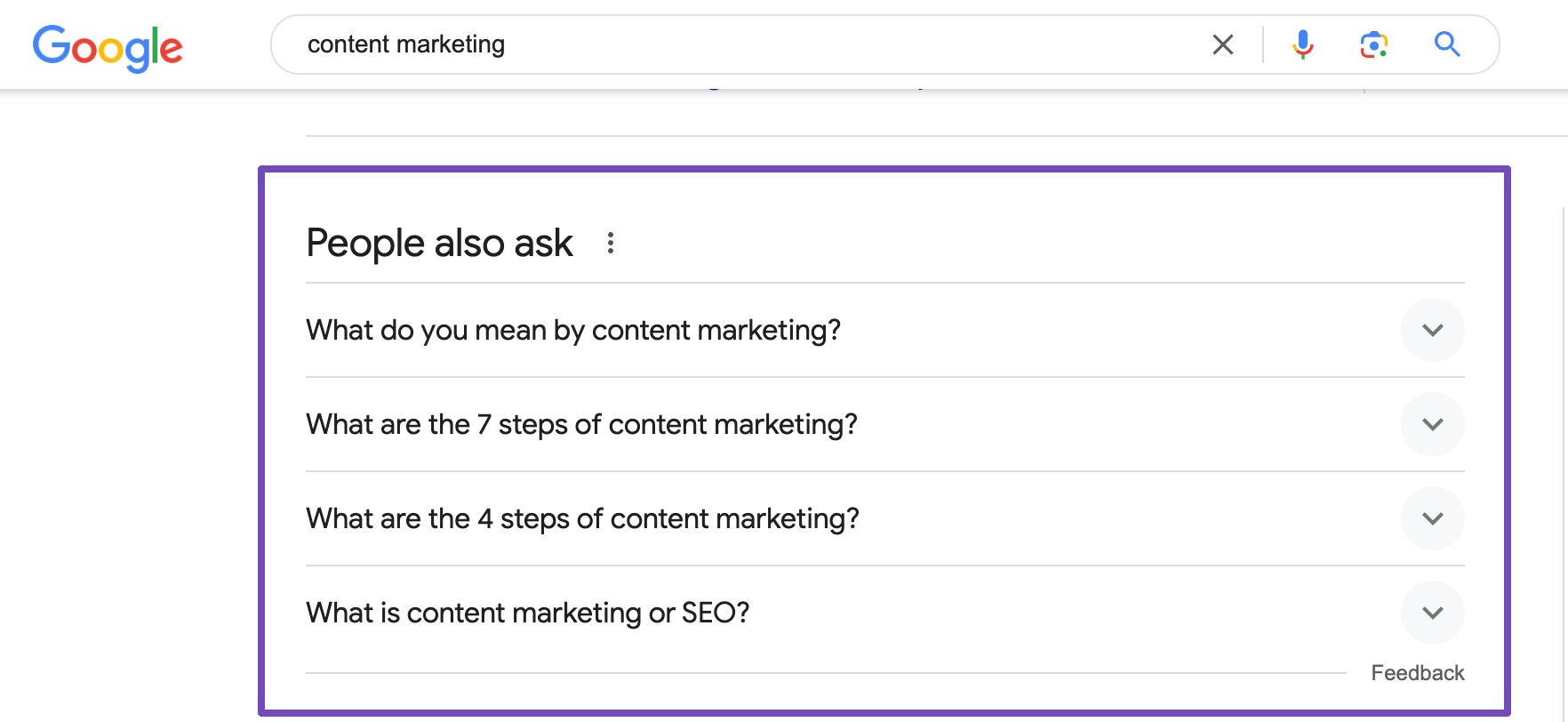
9 Subscribe to Industry Newsletters
Subscribing to industry newsletters is another strategic approach to generating valuable content ideas by keeping you informed about the latest trends, insights, and developments within your field.
Newsletters from reputable sources provide curated updates and in-depth analyses on various topics, often highlighting emerging trends, notable events, and influential opinions that can spark new content ideas.
For instance, if you are in the digital marketing industry, subscribing to newsletters from sources like Ahrefs’ Digest or Marketing Brew can be incredibly beneficial. These newsletters often feature case studies, expert advice, and updates on the latest tools and strategies.

By regularly reading these updates, you can identify hot topics and current debates that are relevant to your audience.
10 Use Content Curation Tools
You can use content curation tools to generate new content ideas by aggregating and organizing relevant information from various sources.
These tools help you discover, collect, and share high-quality content that aligns with your interests and audience needs. By curating content, you can stay updated on industry trends, identify popular topics, and find inspiration for your own content creation.
You can use Google Alerts to discover and save content from your favorite blogs and websites and Buffer to schedule and share curated content on social media.
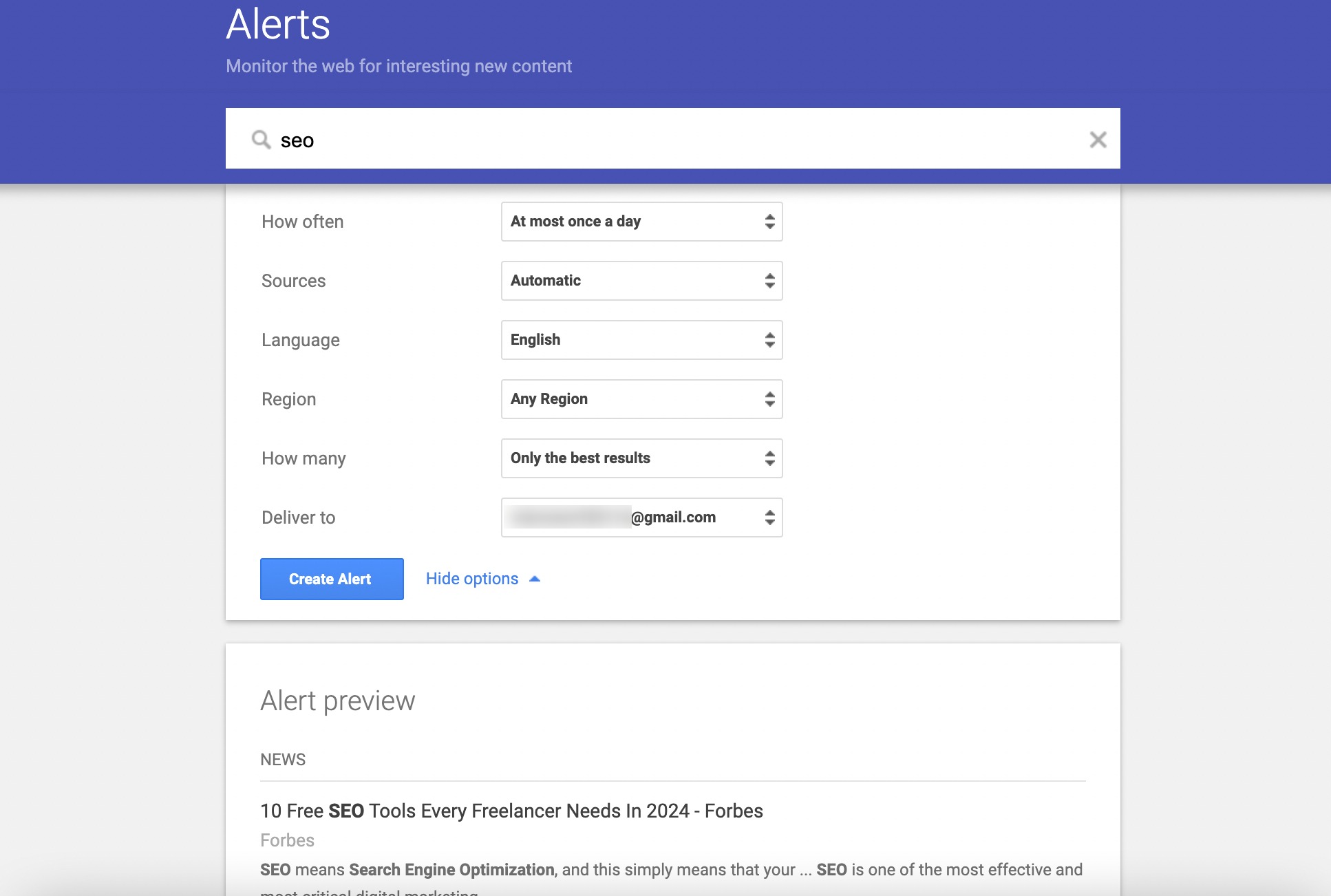
11 Listen to Podcasts and YouTube Videos Related to Your Niche
Listening to podcasts and watching YouTube videos related to your niche is another excellent way to generate fresh content ideas.
These platforms are rich with expert interviews, in-depth discussions, and the latest industry insights, offering information that can inspire your own content creation.
By regularly engaging with this media, you can stay up-to-date with current trends, popular topics, and emerging issues within your field.
For instance, if you are in the tech industry, subscribe to podcasts like TechCrunch Daily Crunch or The Vergecast.
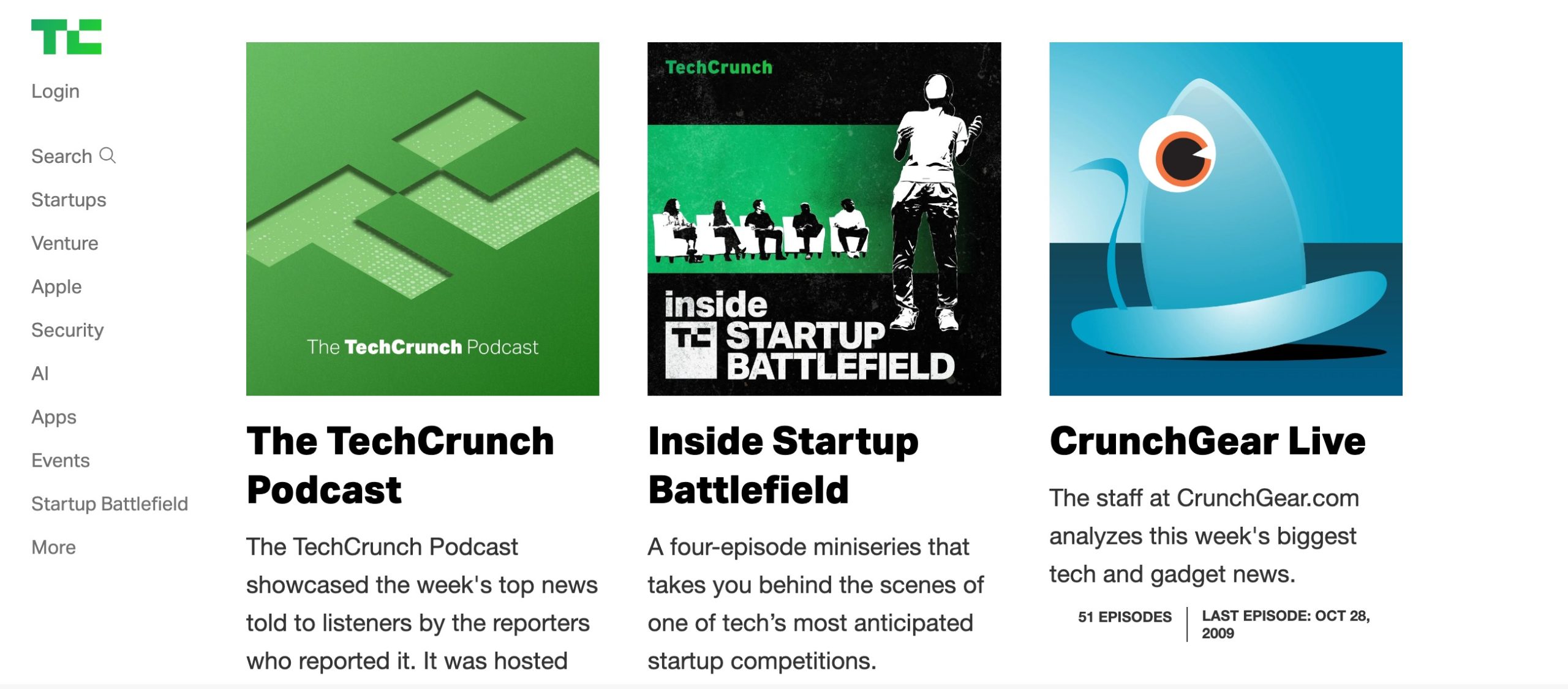
YouTube channels like Marques Brownlee or Linus Tech Tips can provide a constant stream of valuable content ideas.
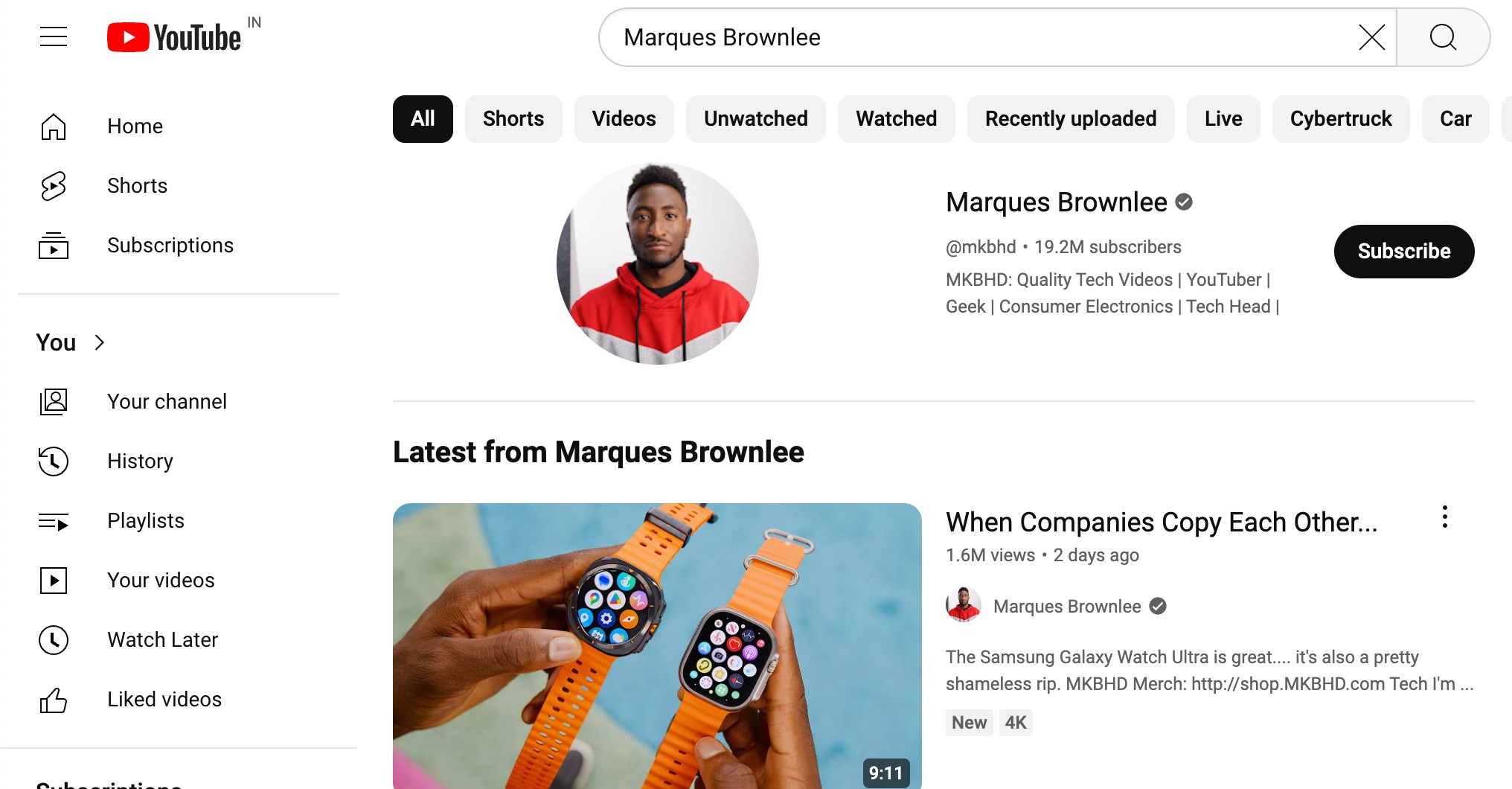
These sources often discuss the latest gadgets, software developments, and tech news, presenting new angles and topics that you can explore in your own content.
Additionally, podcasts and videos often feature expert guests and thought leaders who share their knowledge and opinions.
12 Discover New Content Ideas on Reddit
Discovering new content ideas on Reddit is an effective strategy for content generation, given the platform’s diverse and active user base.
Reddit consists of numerous subreddits, each dedicated to specific topics and interests, making it a treasure trove of real-time discussions, questions, and insights.
To generate content ideas, start by identifying subreddits relevant to your niche. For instance, if you are in the fitness industry, subreddits like r/Fitness, r/bodyweightfitness, and r/nutrition can provide lot of content ideas.
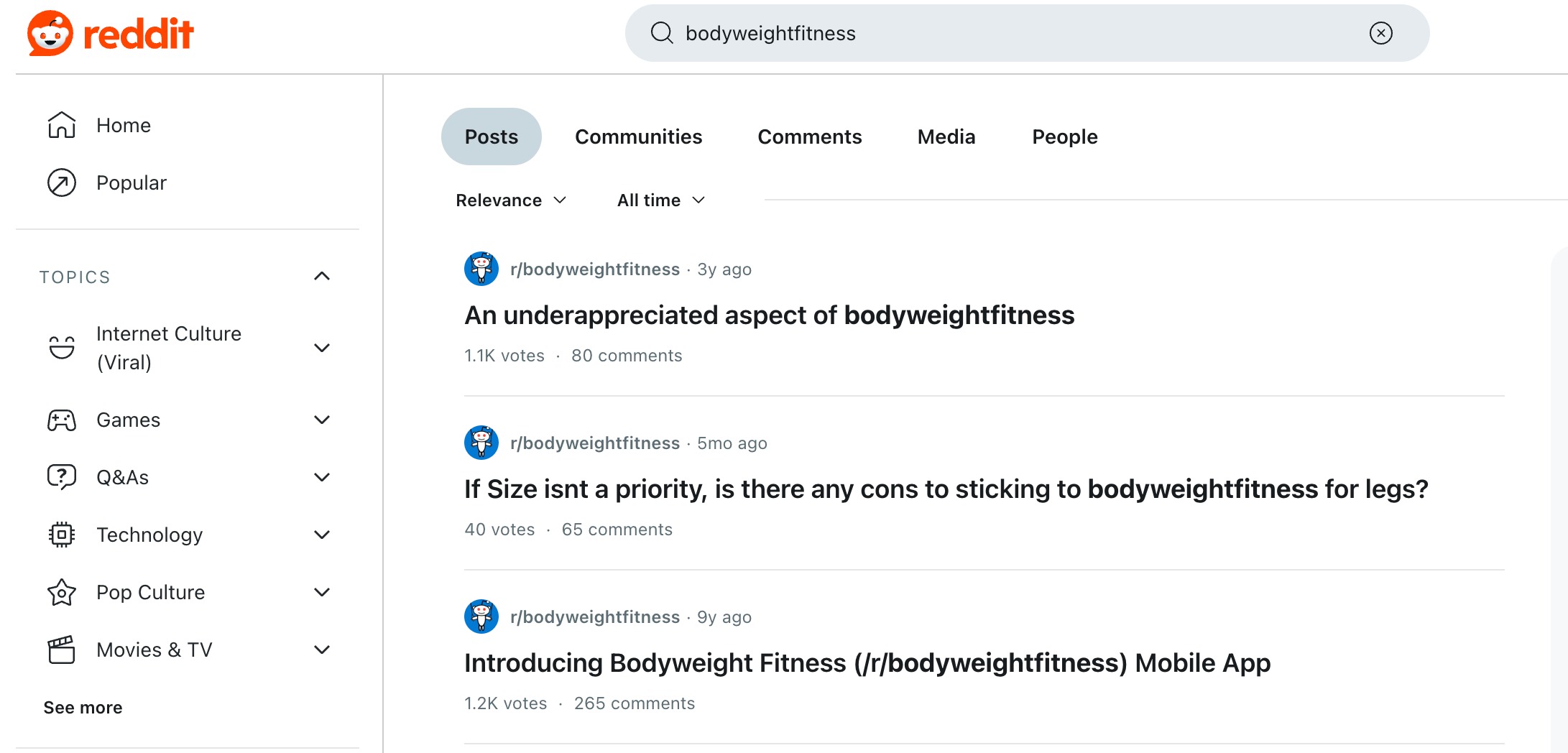
By regularly browsing these subreddits, you can observe the types of questions audiences are asking, the problems they are facing, and the topics that generate the most engagement.
Engaging with these communities can also offer direct inspiration for content. Look for threads with high upvotes and numerous comments, as these indicate popular and relevant discussions.
For instance, if you notice a recurring question about beginner workout routines or healthy meal prep tips, you can create comprehensive blog posts, videos, or social media content addressing these topics.
13 Review Blog Comments
Blog comments are a direct line to your readers, providing real-time feedback and insights that can inspire new content ideas.
For example, on the Backlinko blog, which focuses on digital marketing, the comments section is often filled with questions about SEO strategies, content marketing tips, and social media tactics. By closely examining these comments, Brian Dean and his team can identify common pain points and knowledge gaps among their readers.
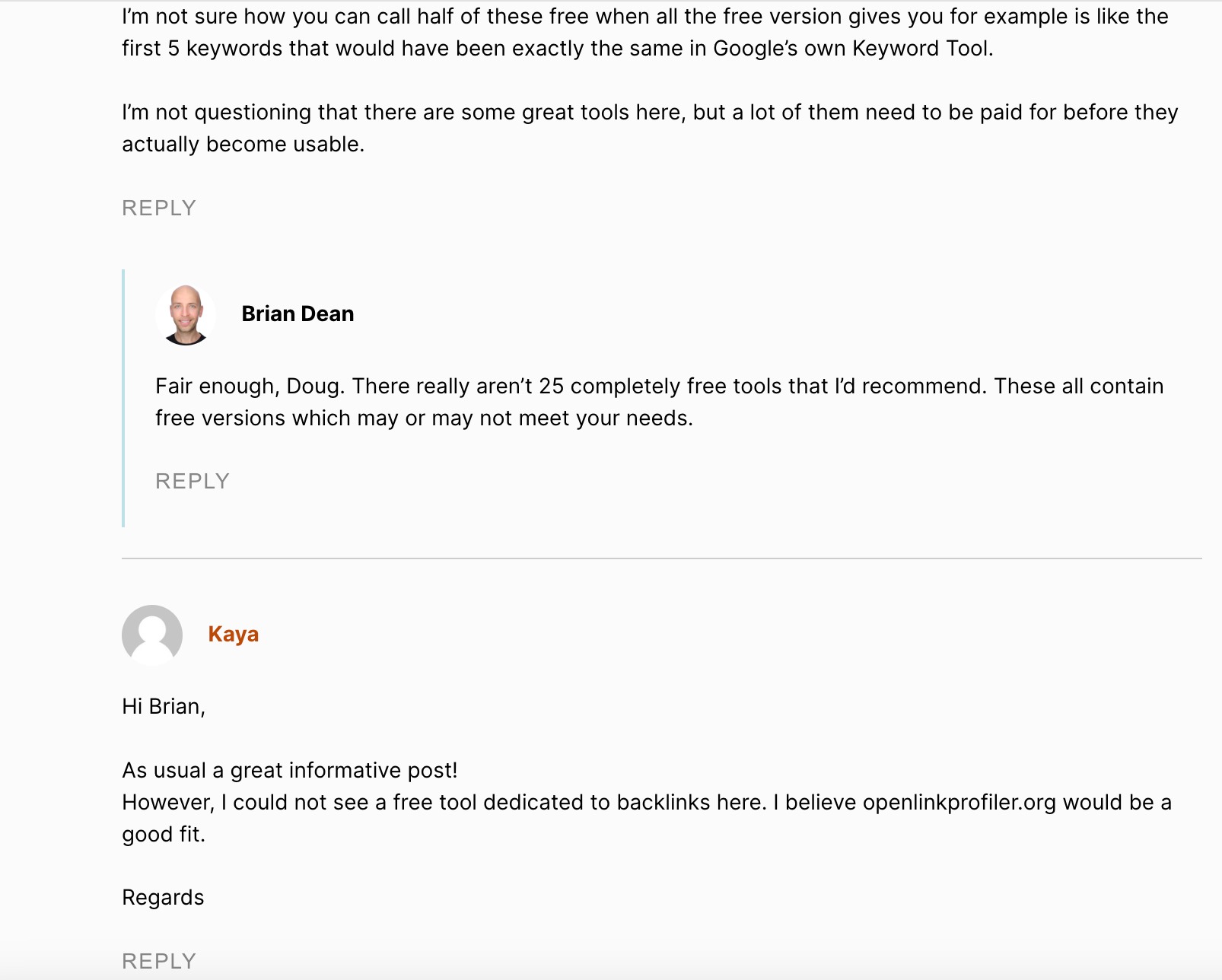
Engaging with commenters by responding to their questions can also spark new content ideas. Their follow-up questions and discussions can reveal aspects of a topic that might not have been covered in the original post.
By addressing these in future content, you ensure your blog remains a relevant and valuable resource for your readers.
14 Stay Updated on the Latest Product Launches
You can keep track of new products and innovations within your industry and can create timely and relevant content ideas that capture the interest of your audience. This approach ensures that your content remains current and provides your readers with the latest information and insights.
For instance, if you run a tech blog, following major tech companies like Apple, Samsung, and Google lets you stay informed about their latest product releases and updates.
You can check the products that win product of the day, week, or month awards on Product Hunt.
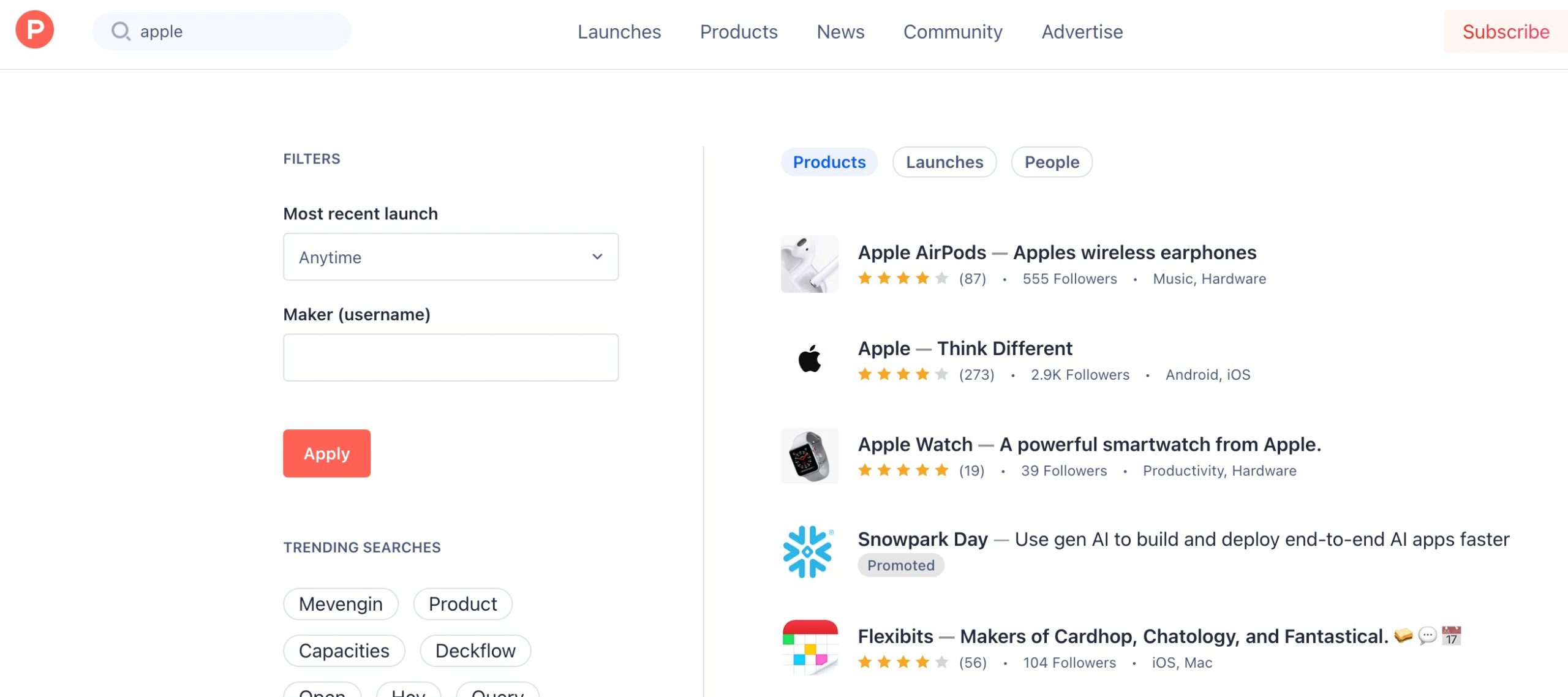
When Apple launches a new iPhone, you can write in-depth reviews, comparisons with previous models, and tutorials on new features. These timely pieces not only attract a large audience but also position your blog as a go-to source for the latest tech news and analysis.
By being among the first to report on these developments, you can generate buzz and drive traffic to your site.
15 Talk to Industry Experts
Talking to industry experts provides deep insights, expert knowledge, and unique perspectives on current trends and challenges within your niche.
By conducting interviews, hosting Q&A sessions, or simply engaging in conversations with industry experts, you can uncover valuable information that can be transformed into high-quality content.
For instance, Content Marketing Institute frequently features interviews and guest posts from leading content marketing professionals. These contributions not only enhance the website’s credibility but also offer readers fresh and authoritative insights.
This expert-driven content often sparks new ideas for blog posts, articles, webinars, and other content formats.
Conclusion
Generating fresh and engaging content ideas is a continuous challenge, but with the right strategies, you can ensure a steady flow of inspiration.
By implementing these techniques, you not only keep your content relevant and valuable but also stay ahead of industry trends and audience interests. With these strategies, you’ll never run out of content ideas again, ensuring your audience remains engaged and your brand continues to grow.
Remember, creativity thrives on a foundation of knowledge and curiosity, so keep exploring and innovating to never run out of content ideas again.
If you like this post, let us know by Tweeting @rankmathseo.
